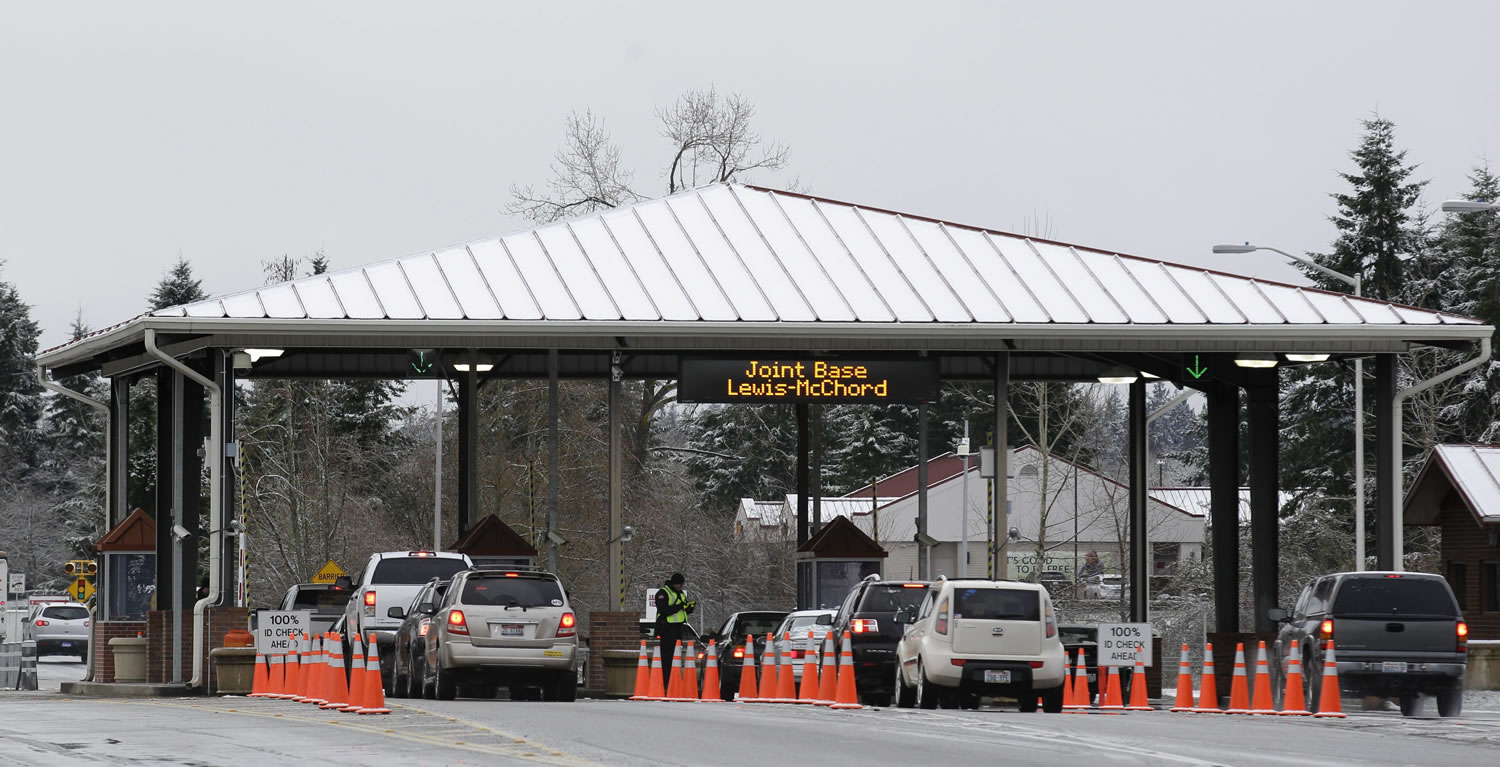LAKEWOOD — For the last two years, Joint Base Lewis-McChord has become accustomed to the media’s glare, and not just for its contributions of thousands of troops to U.S. war efforts in Iraq and Afghanistan.
The sprawling installation between Mount Rainier and Puget Sound, home to both Army and Air Force commands, has played a critical role in the wars, providing everything from infantry brigades built around Stryker armored vehicles, to giant transport aircraft, to elite Special Forces and Rangers units.
Lewis-McChord, the biggest base on the West Coast, also has been the focus of headlines and government inquiries into suicides, deaths and crimes by soldiers based there. Now it’s attracting international attention because a 38-year-old Army staff sergeant deployed from the base is accused of killing at least 16 civilians in Afghanistan villages.
“Every base has its own problems, but no other base has had as much bad press as this base,” said Jorge Gonzalez, 32, executive director of Coffee Strong, a veteran-run nonprofit coffee shop in Lakewood adjacent to Interstate 5 near the base.



